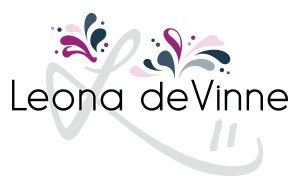
27 Aug The Integrity Tax
I don’t like paying taxes. I want to save my money and spend it on what feels important to me. And I get why we pay taxes – I’m happy to do my part to help others. However, as a business owner, I generate revenue, and it feels challenging to pay large bills, including various forms of taxes, on a monthly basis. When I compare my gross income to my take-home pay, at least in Canada, it can be a significant amount of money every couple of weeks.
You’re probably wondering why I’m talking about taxes.
Lately, I’ve been thinking about another kind of tax – the integrity tax, which is what we ‘pay’ when we don’t live with integrity.
Even yesterday, I was frustrated with myself because I know I’m here to play a bigger game than I currently am. My goal is to have my next book published by a well-known publisher. That requires considerable work, and sometimes I resist doing it. So instead of moving toward the vision, I pay the “tax” of playing small and stew in frustration, self-doubt, and the grind of avoidance when I know what I’m meant to do.
When we think about integrity tax, we could call it a penalty, like a speeding ticket. But I prefer the metaphor of a tax because it accrues slowly over time. Sometimes we’re not even aware of it until the cost shows up everywhere, and by then it can feel like we’re in debt. In business, taxes accumulate behind the scenes until the bill is due. Integrity tax works the same way.
What Is Integrity?
Integrity means whole – aligned with your values, words, and actions. It’s living in congruence.
- Clarity: Knowing who you are.
- Confidence: Own who you are.
- Courage: Express who you are
We all have an internal compass that guides us. But often, we ignore it – or we’ve been conditioned to override it. And every time we compromise, the cost builds up quietly.
Brené Brown’s research shows that people experience the highest levels of resentment when they’ve said yes while wanting to say no. Tax.
Gabor Maté reminds us that suppressing our truth comes with a cost to our health, our relationships, and even our immune system. Tax.
And here’s a striking finding: women in intimate relationships who suppress their anger are four times more likely to die than those who express it.
That isn’t just a metaphorical tax – that’s life and death.
That’s the cost of living outside of integrity.
A Lifetime of Taxes
On a walk with my husband, where we shared some laughs, I recalled how often I compromised my integrity as a teenager. I wanted to be liked and popular more than I wanted to be true to myself.
I grew accustomed to paying that tax, and the cost still lingers today – people-pleasing, perfectionism, avoiding tough conversations, and overextending myself.
It doesn’t stop in adolescence. I see it in friends, clients, and loved ones who pursue certain education paths or take roles for status or compensation, only to find themselves twisting inside to fit the corporate mould.
They wonder:
Is something wrong with me?
Why doesn’t this bother anyone else?
That’s a telltale sign to get curious about whether you’re paying integrity tax.
At work, it shows up as disengagement, apathy, and, ultimately, burnout. Researchers now refer to this as “quiet cracking” – the slow fracture of ignoring our truth until something breaks.
But it’s not just professional. In our personal lives, we pay taxes when we:
- Wear the mask of “I’m fine” when we’re not.
- Silence ourselves.
- Avoid asking for the help we desperately need.
- Say yes when everything in us longs to say no.
- Work beyond the limits of our health.
Each compromise requires a payment from our sense of self.
Tax. Tax. Tax.
Even recently, when a friend invited me to make plans, I felt so stretched thin that instead of replying honestly, I ignored her text. Outside of integrity. Another tax paid. (It feels awful to share this—I need to swing back around and make that right.)
And the truth is, when those taxes accrue long enough, we forget who we are and what matters most.
How Do We Stop Paying?
We get clear, compassionate, and courageous.
Clarity: Who are you at your core?
- What are your non-negotiable values?
- How do you define success on your own terms?
- Try writing your eulogy: What do you want said about you? How are you living that way now?
- If you died today, would you be proud of how you lived your life?
Confidence: How can you own yourself as you are?
- Practice self-compassion. Research shows it’s the most essential confidence builder.
- How can you embrace the parts of you that were trying so hard to stay safe?
- What would you say to a friend who is struggling in ways that you might be?
Courage: How can you live with Integrity?
- Where do you need to shift?
- What can you give yourself permission to say no to?
- What truth needs to be expressed?
- If your values were leading the way, what would you start doing? What would you stop doing?
The more aligned you are, the less you “owe.” Instead of paying in resentment, burnout, or disconnection, you’re investing in vitality, freedom, wholeness – and joy.
The Real ROI of Integrity
The question isn’t if you’re paying integrity tax – it’s how much and for how long.
The longer you wait, the higher the cost.
But when you realign with clarity, confidence, and courage, you stop leaking energy and start compounding trust, freedom, and joy.
Unlike financial taxes, the integrity tax is avoidable.
So here’s the invitation: audit your life for hidden integrity taxes.
- Where are you out of alignment?
- Where are you saying “I’m fine” when you’re not?
- Where are you staying small when you’re being called to more?
- Where are you saying yes when you long to say no?
- Where are you wearing a mask to cover up your truth?
Stop paying the high price of silence, self-betrayal, and burnout. Just Own You. Live and lead with clarity, confidence, and courage.
Because the world doesn’t need you hedging and hiding – it needs you.

Sorry, the comment form is closed at this time.